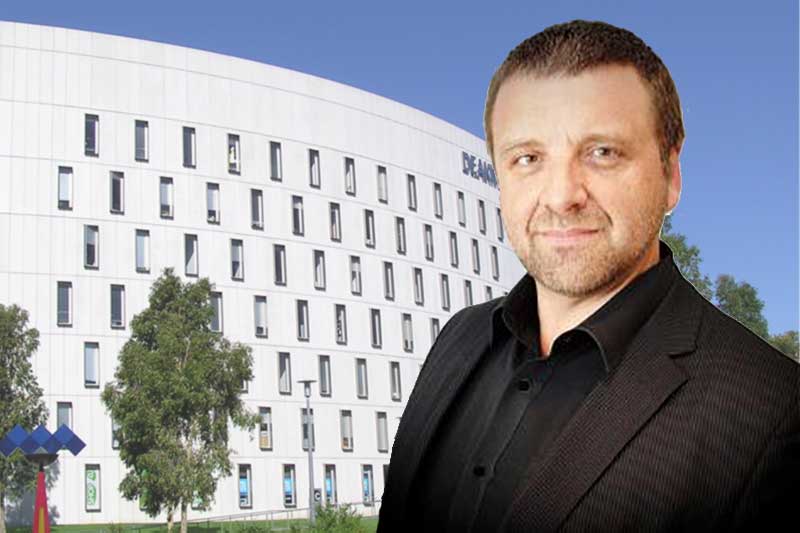
OpenGov spoke to William D. Confalonieri, Chief Digital Officer, CIO & Vice President at Deakin University to understand the role of the CDO and the importance of innovation in the education sector. Mr. Confalonieri has over 25 years of experience in ICT in both public and private sectors and is recognised as a leading technology executive in Australia.
In your role as the CDO of the university, what are the key issues that are important to you?
I will explain what my CDO role consists of. Then we can easily answer your question about where my priorities lie. I was promoted to the CDO role from the position of CIO. But I still have the CIO role. The CDO role is a transformational role.
But I also have to deal with the operational aspects, which come with the CIO role. So, the domain was expanded a few years ago. My responsibility here is to lead the organisation through unknown paths, trying to succeed in a digital landscape. I am trying to prepare the organisation for what is coming.
We have moved rapidly from technology as a ‘platform of record’ to technology as a ‘platform of engagement’.
We are putting a lot of focus in technology to gain hearts and minds, and not only to have safe and reliable transactions. The WOW effect is at the top of my priority, to delight students with powerful, inspiring experiences. Our university is proud of being ranked first in the state of Victoria for student satisfaction for 6 years in a row (Australian Graduate Survey 2010–2015).
The other theme is the transformation of the organisation. Everyone is trying to respond to digital disruption through digital transformation but there is little understanding of what a digital transformation program is. Most organisations still believe that this is mostly about technology or technology upgrade programs. It’s not that.
In my view, it’s basically composed of an external and an internal process. Out there, you deliver innovative, cool things for your stakeholders. Internally you provoke the transformation within the organisation. It will be unsustainable if you neglect the latter.
Organisations still have industrial DNA, industrial mind-set. It is necessary now to acquire digital DNA to survive and to succeed. But that is very easy to say, very hard to accomplish. Most organisations are still too vertical.
To survive in a digital landscape, you need a more horizontal approach. Because the way your customers see you is horizontal. My role is to lead the organisation in a new direction. Technology innovation as a factor but not the most important one. The internal transformation that is required is the most crucial.
We will soon be using augmented reality applications across many of our disciplines, also for the navigation of campus. We are working with robots, with holographic technologies. We are doing everything that can be done in leading-edge technologies. We are ahead of the competition in the sector. But again, that is one part. Internal transformation is the other.
I have always felt that technology is easy. People are complex. My interest is the transformation inside organisations and the people making up the organisations.
What are the challenges you are facing in organisational change? Could you also talk about the priorities you are setting to achieve those goals?
I have a professional change management team in place. All our initiatives have a change management activity associated to them. We follow best practices. We have people with proper credentials running the show. But probably, the most interesting change management is the one that needs to happen at my level, at the top level.
When you deliver a project of course you can apply those change management techniques to the business space that you are modifying. It’s different when you have to change mental models at every single level of organisation. It is less documented and needs a subtler approach.
In NSW they have appointed Damon Rees as the new government CIO and CDO. So like you, he has two hats on. In most organisations, those are two separate roles. How do you see this role evolving in the future? Will it be one person with two hats or two people, is it dependant on the size of the institution or the agency? Or is it going to be more important for people to take on the digital aspect? What’s your view of this particular role, which didn’t exist a few years back?
I was the first CDO in Australia when I was assumed the role in 2012. My answer is I don’t know. My view is that this series of disciplines, IT, digital etc. need a complete overhaul. The traditional IT or CIO or CDO roles are patches but they are not the final shape of what is required to navigate this new century. My intuition tells me that some big changes are just around the corner.
I also think the terms, ‘CIO’ ‘IT’ are problematic. They were representative of the function forty years ago. But now they limit understanding of the role those functions should play in organisations. I feel there is a big transformation required.
I don’t know if will be relevant to have a digital officer in the future. Perhaps the role will mutate into something else. Because everyone should be involved in digital strategy, should have an intuition of how ‘digital’ works.
What role do you see innovation play in the responsibilities of a CDO?
From my perspective, innovation should be a part of the DNA of any modern organisation and it should be part of the mind-set of any leader. It’s not associated with any specific position or specific discipline I believe. We live in an era of exponential change. Certainly many of those changes are provoked by technology. But technology is the initiator. All the rest is not necessarily technology.
For example, augmented reality and artificial intelligence will dramatically change the organisations, industries and the job market. Innovation is the only tool we have to fight for our place in the market. Those that don’t do that won’t survive. Those who don’t embrace change and innovation will have serious problems staying in a competitive space.
How do you evaluate success for these digital transformation programs at the university? What outcomes are you hoping to achieve?
Our motto is “Driving the digital frontier” and we are quite serious about that. We are ambitious in our initiatives, in our projects, in our investments. That has been paying off. The satisfaction of our students is booming. Our numbers are booming and our reputation is great in the market. All the awards helping create other relationships, global connections. Universities in other parts of the world wanting to work with us, because we are leaders in the digital space. Everything is helping the performance of the business. But it’s not only return on investment, but a question of survival.
In my personal view, in a few years from now, if you are a student, your relationship with the university will be with a virtual reality device and artificial intelligence. You will be working with a virtual patient from your living room, if you are a medical student. You will be travelling virtually to incredible places. You will be doing virtual experiments.
Experiences with virtual reality will be by far richer than in the real world. Education will be highly personalised not that long from now. We are in an age of extreme personalisation and that is where education will be as well. We need to deliver education that is perfectly adapted to your personality traits, style, preference, time constraints.
We need to deliver that to a massive population. We have 55000 students today, just at Deakin University. We need to deliver that personal learning experience at a massive scale.
Of course, face to face, informal coaching, mentoring relationships will remain as core part of the process. But everything that is related to content delivery and learning is going to be managed by very sophisticated technology. That is the future of universities.
If that is the future and we are in a completely different place, we have to close the gap quickly. Else, the gap is going to close on us.
















